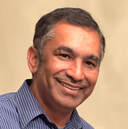|
For Demographic Diversity in Clinical Trials, Go to Non-US Sites
(Thursday, March 17, 2022) Clinical trials in the US lack demographic diversity. Multiple programs from FDA in the last 5-10 years to boost higher clinical trial participation from Black and Latino patients in the US have failed. However, recruiting patients from countries in Africa and South America has not been discussed much even though it may be one way to assure reasonable clinical data in the populations that are hard to recruit in the US. Clinical data from non-diverse populations leads to approved drugs lacking important safety and efficacy data in all populations, in turn creating uncertainty about the utility of new treatments in these populations. While efforts to encourage higher participation from Black and Latino patients in the US should continue, there is need for short-term solutions to the fill the gaps in the clinical utility information in these populations. More than 60% of all clinical trials are conducted in the US and Western Europe where they recruit predominantly Caucasian participants. Only 3% of the clinical trial sites are located in the entire African continent and 2% in South America. In contrast Asian countries account for about 15% of the clinical trial sites. The main reason for few studies in those regions is the scarcity of clinical trial infrastructure in Africa and South America. While there is extensive talk of building clinical trial infrastructure in the unrepresented communities in the US, a similar effort in Africa and South America should also be explored, at least with the same vigor. The pandemic exposed worldwide health inequity. One way to address that is by building clinical trial infrastructure. Governments in Africa and South America are quite receptive to high quality ethical clinical trials in their regions. It has been proposed that physicians and clinical teams from Black and Latino communities can help encourage higher participation from these communities in the US, but in Africa and South America, this work environment is readymade. The last decade has shown that despite the best efforts from FDA and policy think-tanks, sponsors are unable to generate representative clinical trial data from Black and Latino patients in the US. So, we need a Plan B. Building clinical trial infrastructure in Africa and South America to recruit representative sample of clinical patients from there is a viable option. It could not only provide the missing clinical data from communities unrepresented in US clinical trials, but could also address the health inequity on those regions of the World along with that in the US, a win-win for global health. 
AUTHOR
Dr. Mukesh Kumar Founder & CEO, FDAMap Email: [email protected] Linkedin: Mukesh Kumar, PhD, RAC Instagram: mukeshkumarrac Twitter: @FDA_MAP Youtube: MukeshKumarFDAMap |
|

